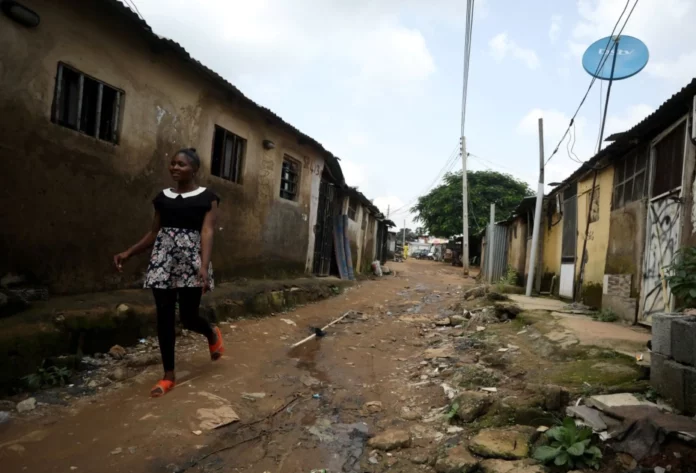REVOLUTIONARY SOCIALIST MOVEMENT (RSM)
February 17, 2025
PRESS STATEMENT
RSM CALLS FOR RENT CONTROL AND MASSIVE PUBLIC HOUSING INVESTMENTS IN NIGERIA TO ADDRESS RISING RENT AND HOUSING DEFICIT
Nigerian workers and the masses have witnessed a sharp increase in inflation since President Tinubu assumed office, leading to a significant rise in the cost of living. Many workers and ordinary citizens have been forced to live in deplorable conditions due to the economic policies of the Tinubu-led administration. What is even more alarming is the outrageous surge in housing prices.
Although the Tinubu administration approved a new minimum wage of ₦70,000 last year, many state governors, private employers, and even the federal government have refused to implement this policy in full. At the same time, millions of Nigerians cannot afford decent housing. Many are living in precarious and overcrowded communities with poor sanitation, which has led to a growing health crisis.
According to reports, Nigeria faces a housing deficit of over 17 million units. This is a massive crisis that requires urgent intervention and substantial public funding to resolve. The Revolutionary Socialist Movement (RSM) has consistently advocated for massive public housing programs and rent control measures to address the issues of vacant houses and homelessness, which are prevalent today.
Despite the enormous housing deficit and widespread homelessness, the Minister of the Federal Capital Territory (FCT), Nyesom Wike, recently attributed the rising cost of housing in the FCT to market forces. When questioned by journalists about the FCT Administration’s efforts to address high rents, the minister stated that the cost of everything has increased and that no government legislates on rents, as they are determined by market forces. But which are these “market forces”? Don’t they have a name? Aren’t the big market players capitalists who make decisions based on their drive for more and more profits?
The government can and must intervene through massive public investments to address the housing deficit. Additionally, rent control policies can be introduced to put a break to the exploitative practices of landlords and estate realtors, who are largely responsible for the skyrocketing cost of rent in Abuja and across Nigeria.
In major Nigerian cities such as Lagos, Enugu, Benin, Kano, and Port Harcourt, the rent for one to two-bedroom apartments ranges from ₦800,000 to ₦2,000,000, depending on proximity to major roads. This unaffordability, coupled with the high cost of living, has exacerbated the housing crisis. For instance, in Wuse 2, a two-bedroom flat costs between ₦15 million and ₦20 million, while in Maitama, prices can go as high as ₦40 million. In contrast, similar two-bedroom flats in Jikwoyi cost between ₦380,000 and ₦800,000, and in Karu, they range from ₦850,000 to ₦1 million.
The Revolutionary Socialist Movement (RSM) has consistently opposed the neoliberal agenda of privatization, deregulation, and anti-poor policies. The Tinubu administration remains committed to neoliberal policies in the housing sector, as dictated by the World Bank, the International Monetary Fund (IMF), and Nigeria’s ruling elite. The profit-driven interests dominating the housing sector make it impossible to provide affordable, quality, and mass housing for the people.
For instance, the production of cement, a key material in construction, is monopolized by Dangote and a few other corporations (Lafarge, Holcim, BUA Group, etc.). Other building materials are either imported or locally produced at exorbitant costs. The only way to significantly reduce construction costs is to nationalize cement production, steel factories, and other critical sectors. This must be accompanied by massive public investment and a well-thought-out plan under the democratic management of workers and tenants. Such a plan should aim to meet the housing needs and infrastructural requirements of all Nigerians.
This approach is the only way to guarantee cheaper, quality housing for everyone in the long term, while also creating much-needed employment opportunities for construction workers.
The RSM stands for Nationalisation of the building sector, without compensation to the current owners, under democratic control of workers and tenants
A massive public investment program to build new quality housing, using environmental-friendly methods.
Rent control measures, putting a cap of rent price as a percent of the tenants’ income
In order to secure funds, tax the wealthy capitalists and bankers
Salako Kayode
Publicity Secretary
RSM



